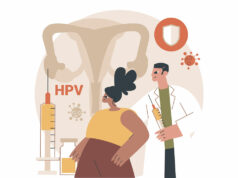By Nickky Faustine P. de Guzman, Reporter
Women are heroes without superpowers. And it is seemingly unfortunate that their significance is reduced to celebrating it every March, and not every day, when they are on call 24/7. Picture these two unsung superwomen: one mom deals with a child with ADHD (attention deficit hyperactivity disorder), who, at one point, because of his emotional impulses and instability, got a knife and turned it on his mother. Another wonderwoman is dealing with her own epilepsy while simultaneously taking care of her own mother who has dementia.

Josephine Esteban and Jeanne Desiree Khonghun were part of a gathering on March 28, which highlighted the role of women in life, at home, and in society, and their journey in dealing with someone who has ADHD, dementia, and epilepsy. They were gathered by Novartis Healthcare Philippines, which has a mission of informing the public on health matters while acknowledging the roles women play.
ADHD is a chronic condition which, as its name suggests, results in difficulty in paying attention, hyperactivity, and impulsive behavior. Children with ADHD may struggle with poor self-esteem and low school performance.
Ms. Esteban said that at the end of the day, the best medicines in dealing with children with ADHD are understanding and acceptance.
“I used to be in denial of my son’s condition, kasi ’di ba, anong sasabihin ng iba (because what would other say)?” she said. Her son was first diagnosed with ADHD when he was 13. Their journey together made her realized that she “should stop criticizing, punishing, and blaming, instead, start accepting, listening, and trusting.”
“Raising a child with ADHD is not an easy task, and moms often struggle to cope,” said Dr. Elizabeth Palines, chairman of pediatrics at the Batangas Medical Center. She asked how their husbands are involved in situations like these, and the two mothers said they are not fully in charge. Most often than not, Filipino families rely heavily on the mothers or they get house helpers and caregivers for support.
But the major challenge does not lie in who gets to take care of the children with ADHD, but how early they should be diagnosed. Ms. Palines said early diagnosis is important in alleviating and treating persons with ADHD, because “a developing child still has a long life span to develop their values.” She said medications are scarce and not readily available in the Philippines, but patients can opt for occupational therapy, which is priced at around P500 per hour.
Ms. Esteban’s son, now 19, is currently a basketball varsity player in college. “I’ve learned that you should not be asking them ‘bakit,’ ‘bakit mo ginawa ito, ganyan’ (‘why,’ ‘why did you do this or that’) because they feel that they are being judged,” she said. Instead, ask them “how” and keep it within a 30-second time limit because they have short attention spans. It’s all about understanding, she said.
DEALING WITH DEMENTIA, DEPRESSION, AND EPILEPSY
Dealing with epilepsy, like ADHD, is also a challenge, said Ms. Khonghun. She had to give up her career as a teacher, was asked to be a housewife, and was advised not to breastfeed, because stress affects her health. But women with epilepsy can have children, and 95% of them can bear normal children, said Dr. Leonor Cabral-Lim, chair of the department of neurosciences of the University of the Philippines General Hospital.
But they have special needs.
“Compared to their peers, women with epilepsy who are within the childbearing age face unique challenges relating to pregnancy and breastfeeding,” said Dr. Lim. She said they must work with their obstetrician and pediatrician to address their needs when it comes to their medication. Their medicines can cost around P250.
Epilepsy is a neurological disorder where the nerve cell activity in the brain becomes disrupted, causing seizures, sensations, and sometimes unconsciousness. Epilepsy can be genetic or acquired (through trauma, a tumor, or a childhood infection). The cause may also be unknown.
While dealing with her own epilepsy, Ms. Khonghun’s faith and strength were tested recently when she found out that her 76-year-old mother has dementia and her younger sister has anxiety. Dementia affects memory, thinking, and social abilities.
According to piMetrics, an organizational development and human risk capital management company, epilepsy and dementia are among the 48 diseases and conditions in the country that cause 80% of the Philippine health burden.
Dementia, however, “is not part of ageing,” explained Dr. Socorro Martinez, chairperson of the Dementia Council of the Philippines Neurological Association. She said dementia can be detected 10 to 20 years before its occurrence by checking one’s spinal fluid. She said persons with diabetes, hypertension, and obesity are more likely to develop dementia later in life. It’s a matter of lifestyle changes in diet and exercise, she said.
“It has no cure, but only symptomatic relief, and it is more effective if it is diagnosed early,” said Dr. Martinez.
Ms. Khonghun said her mother refused to believe and accept that she has dementia which is why it was not treated early on. She said her mother would whine about forgetting faces and names and little things like keys.
It is not only the people who suffer from dementia who experience its burden, but also their caregivers. Dr. Martinez said caregivers have a 40% chance of developing depression from taking care of people with dementia. She said they should get two days off from caring of the patient to be refreshed. In the case of Ms. Khonghun, she did not develop depression, but she does need to get some rest. After all, superwomen also need their me-time.



